Discover Tokyo’s LGBTQ+ scene with Japa Chiiill
Tokyo-based tour guide Masaki Uotani reveals the city's queer scene to Attitude's travel editor

“Ten years ago, this exhibition would have been impossible,” my guide Masaki Uotani tells me.
We are in a small room in Tokyo admiring the homoerotic art of gay artist Moriuo, who is hosting a four-day pop-up show. He is displaying his salacious pieces and selling postcards featuring naked male figures in his distractive cute manga style.
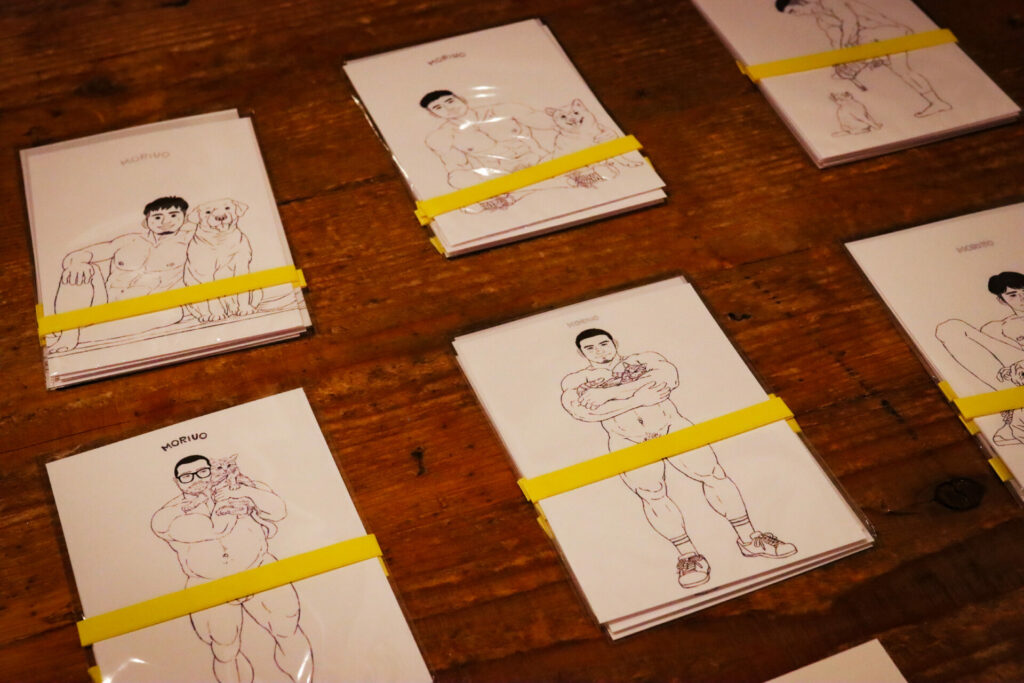
Not all of his work is risqué; he regularly makes comics and art featuring cute couples, and beauty brand Lush has commissioned him to produce a piece featuring two grooms with the words “Freedom of marriage for everyone.”
Masaki explains that in the past 10 years, the image of LGBTQ+ people in Japanese society has changed significantly. One of the biggest displays of this shift was Netflix’s 2024 gay dating show The Boyfriend, which showed Japanese men in a kind and positive light and became a hit in both Japan and the UK.
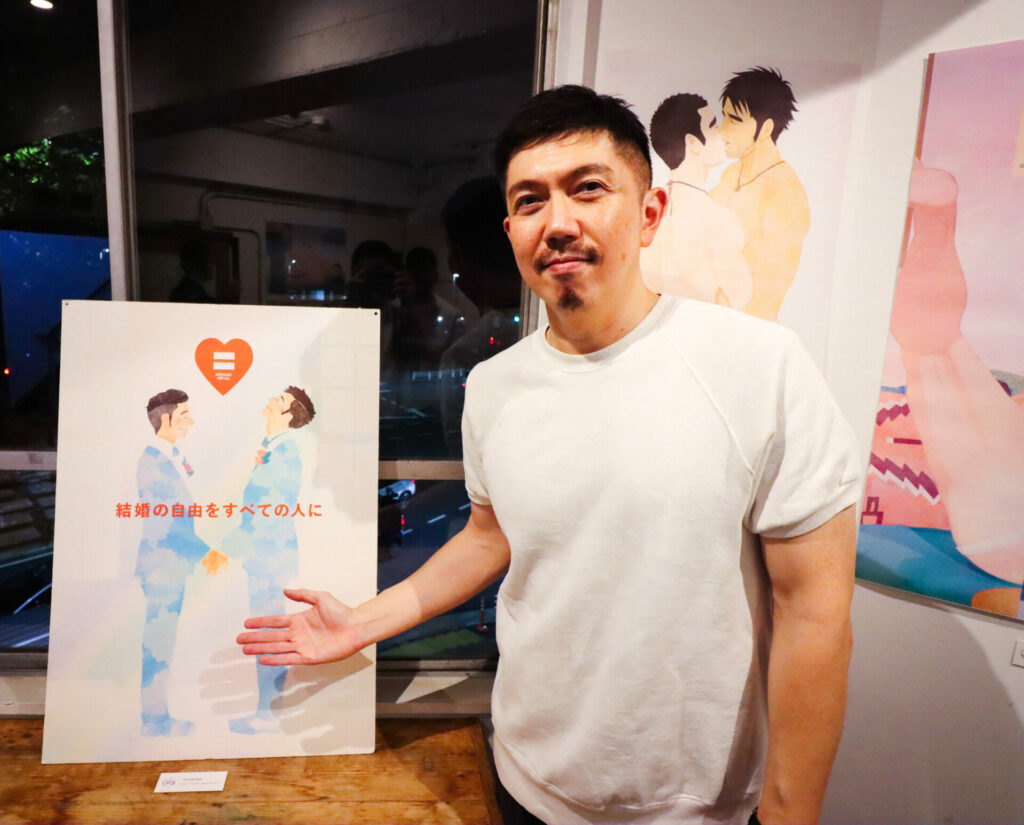
I have limited time in Tokyo before I explore more of its mainland, so I have hired Masaki, who runs Japa Chiiill, a tour company that crafts bespoke itineraries for LGBTQ+ travellers. He offers everything from traditional experiences like visiting a bath house, Japanese gardens and museums to taking you cycling or hiking through rural areas around Tokyo.
He is also a photographer, so he can help capture special moments. Having lived in Vienna, Austria, for many years as a young adult, he is fluent in both English and German.
We are in Shinjuku, Tokyo’s busiest ward, where parts of it feel like New York’s Times Square on steroids. Its Ni-chōme area is also home to most of Tokyo’s 300 LGBTQ+ bars. Although there are many venues at street level, Masaki is going to show me some of the harder-to-find locations. We start at So Bar Naruaki, a gay-owned soba noodle restaurant.
A row of Edison bulbs hangs above the bar, behind which much of the food is prepared in front of us. The owner of this 12-cover restaurant is Naruaki, a large man with round, thick-rimmed spectacles and a smile that lights up the room. He and his staff are all dressed in smart kimonos as they prepare our multi-course meal.
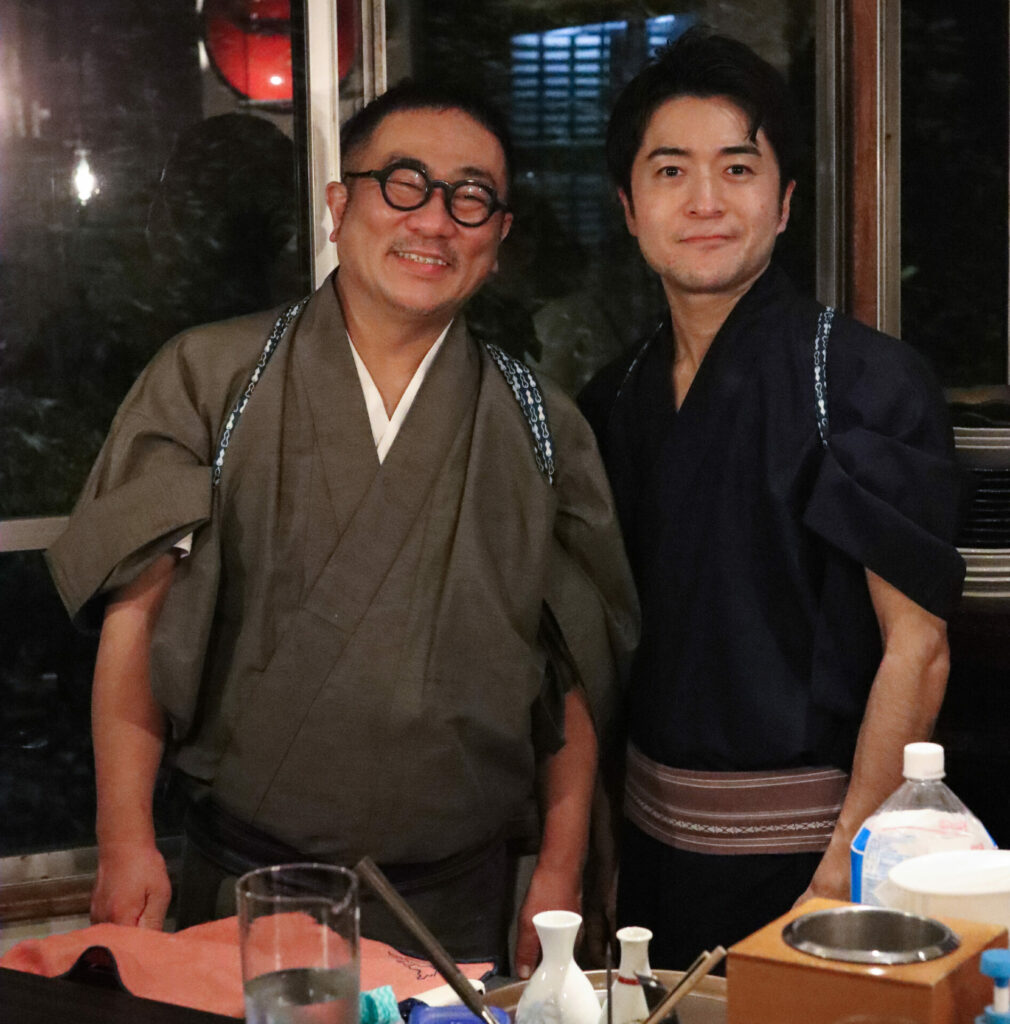
Naruaki grew up working in his parents’ soba restaurant and, after trying other careers, opened So Bar six years ago. Although Japan has one of the highest densities of restaurants in the world, there are very few LGBTQ+-owned restaurants, so it isn’t too surprising when Naruaki tells us that 90 per cent of his customers are from the community. We enjoy several courses before slurping up the soba noodles which are made fresh in the restaurant each day.
Next, it’s time for a bar crawl, which begins with a phone call to Bar Quine Guine. It is a members-only bar, and although you don’t need to be registered to visit, you have to be brought there by someone who knows the owner or bartenders.
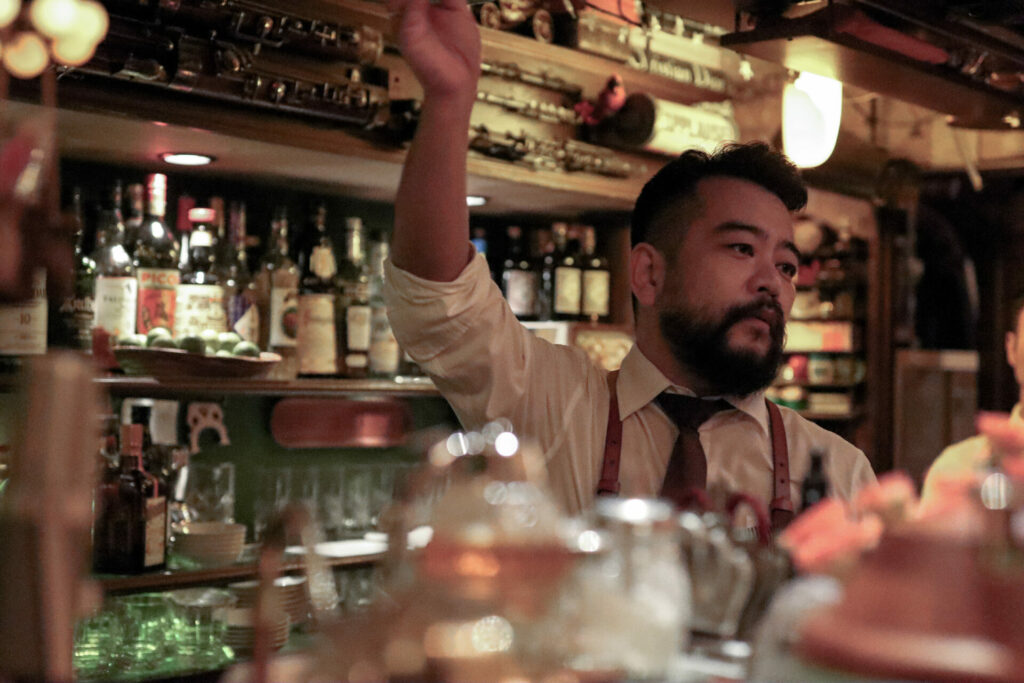
Basically, it’s a vibe check — they only accept people they want to spend time with. Last time I was in Japan eight years ago, I tried my luck by going into a random bar and was swiftly pushed out of the door, so it’s great to have a guide like Masaki who can get me into bars that most tourists would not have access to.
We are given the go-ahead and jump into a lift. On the journey up, Masaki points to a set of eight tiny signs on display and tells me they are all gay bars. It is quite mesmerising to see so many in one city.
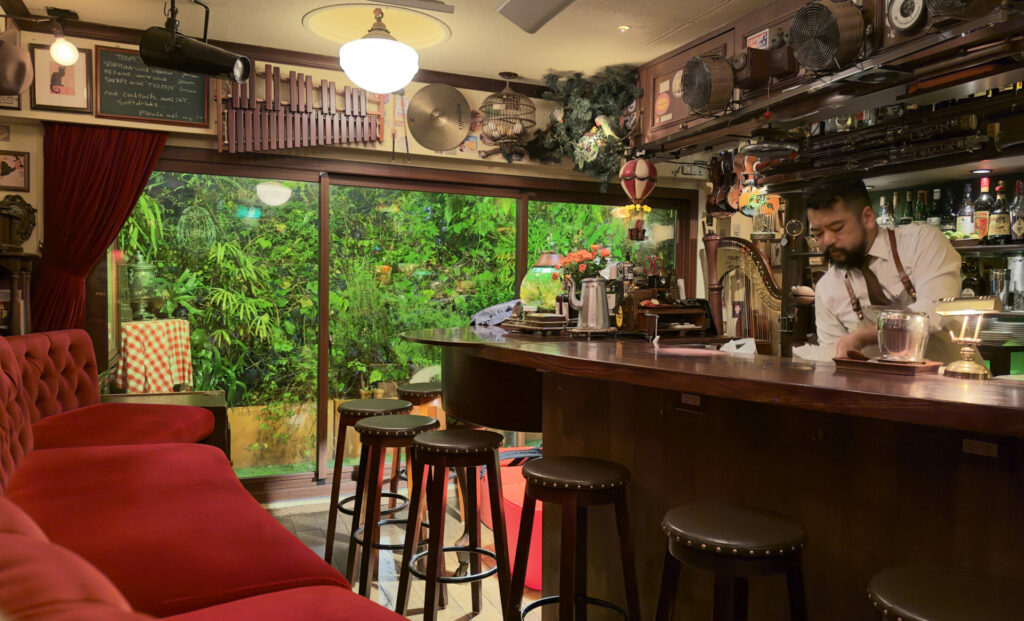
Masaki has sold Bar Quine Guine to me as being like something out of a Studio Ghibli film, and he isn’t wrong. On every wall are instruments — five flutes here, seven violins there, a xylophone over the door, and so on.
There are only seven stools, behind which is a long velvet booth facing the bar and next-to-no standing room. This is next-level intimate drinking. Shin, the bartender, makes me a green cocktail with no name out of matcha, grape juice and vodka, and as he slides it over, a sound-effects machine makes a whoosh sound.
It is one of many times during the evening that he uses sound effects, spotlights and animatronics — it often feels like I’m in the audience of The Muppet Show, and I can’t help but laugh at the absurdity.
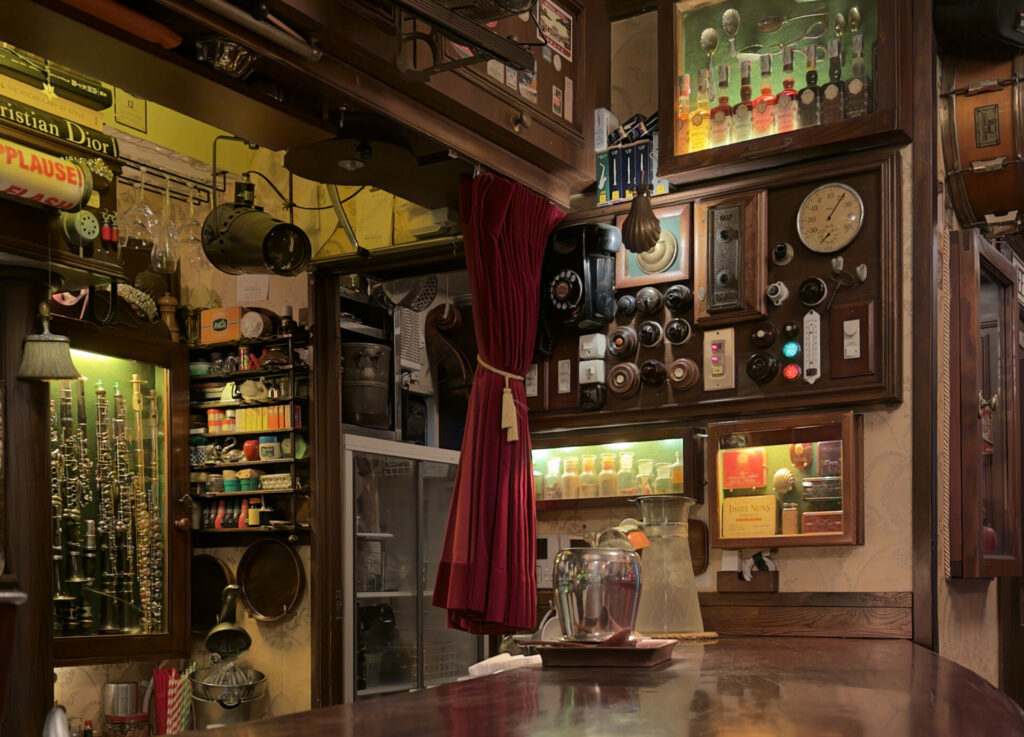
An old rotary phone rings, and Shin answers to admit more people. It doesn’t take long for the bar to fill up. At one point, Shin sits behind the wooden bar and plays the piano, and I realise I’m sitting at the back of it, with my drink perched on the each tinkle of the keys. Although it’s tempting to spend the whole night here, we have other places to see.
Next, we go to Bar G-pit, a venue owned and run by trans men, which only opened 10 months earlier. Masaki explains that the bar is for everyone, but it is popular with straight cis women who fancy trans men, especially Kento, the owner, who has a large following on his social channels.
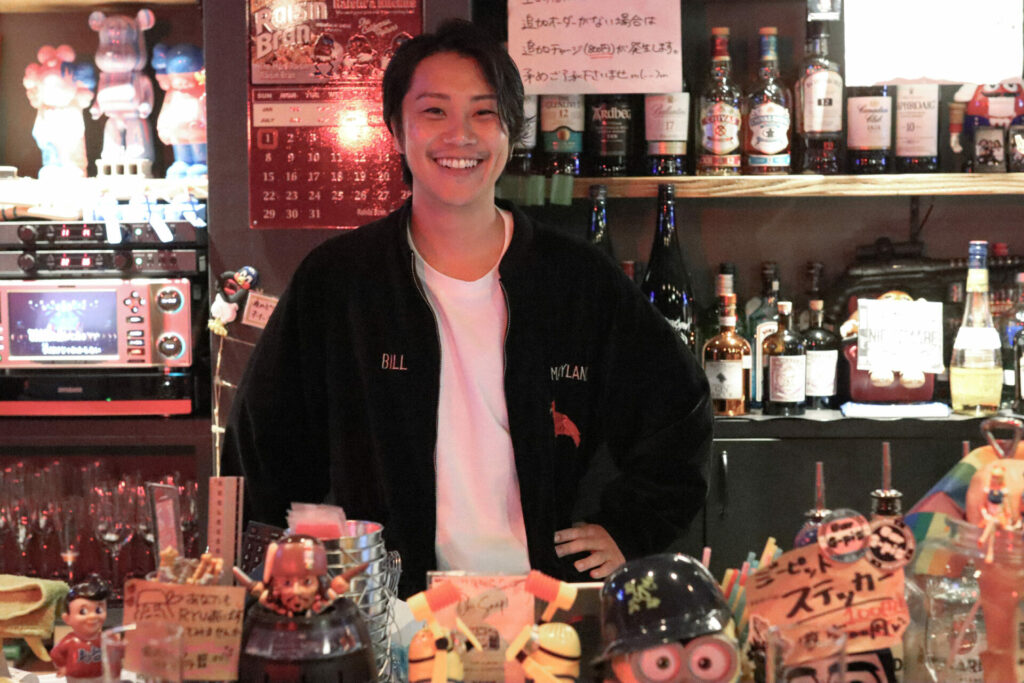
Kento tells me that trans people in Japan face similar issues as those in the UK, including years-long waits to see a specialist doctor. The gendered bathroom debate looms large here too, but in October 2023 a landmark legal battle was won. Japan’s Supreme Court ruled that it was unconstitutional that trans people must be surgically sterilised and have bottom gender-affirming surgery to be allowed to legally change their gender.
Kento reveals that he started an agricultural business selling rice in the Ibaraki prefecture north-east of Tokyo to help build a community for the LGBTQ+ community in the rural area, but they had to close because of the pandemic. He now helps trans people to access the gender-affirming treatments they need. But here and now, his bar is a fun space lined by lots of children’s toys and has more space to sit and stand than other bars in the area.
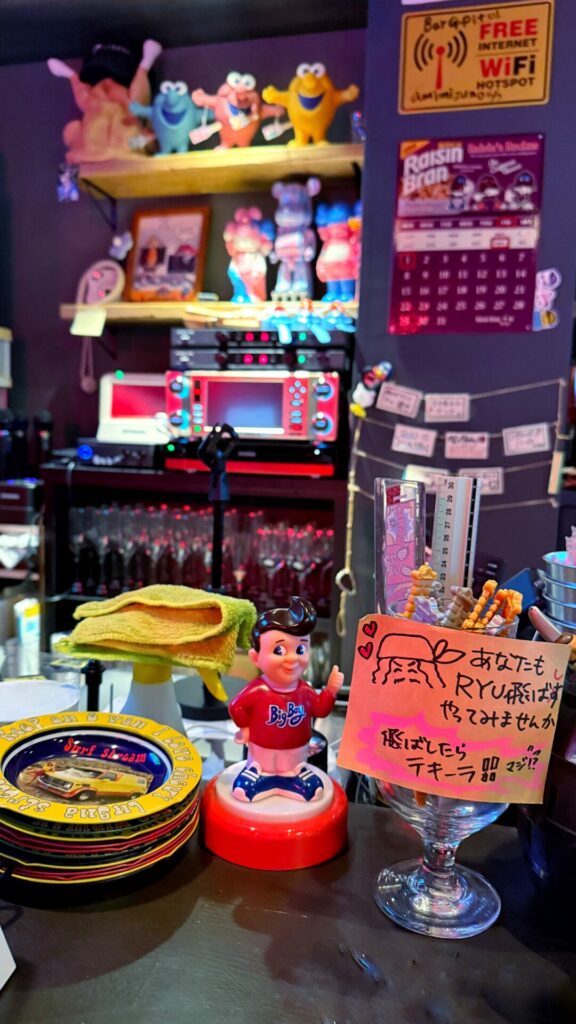
On our way to our next bar, we walk down some narrow alleyways that I would avoid in most other countries, but I always feel safe in Japan. We pass bar after bar — only a tiny neon sign indicates that they are in fact a business. We come to a narrow alley and enter Bar Forme. Inside, there are seven seats and no standing room, but three bartenders.
“The bar is small but very popular, especially at weekends, and many customers want to enjoy a nice conversation with bartenders,” Masaki says, explaining why there are so many bartenders for such a small bar. “That’s why they have two or three at weekends to entertain all customers. It’s a unique culture in the gay scene in Japan. Talking with bartenders is quite important.”
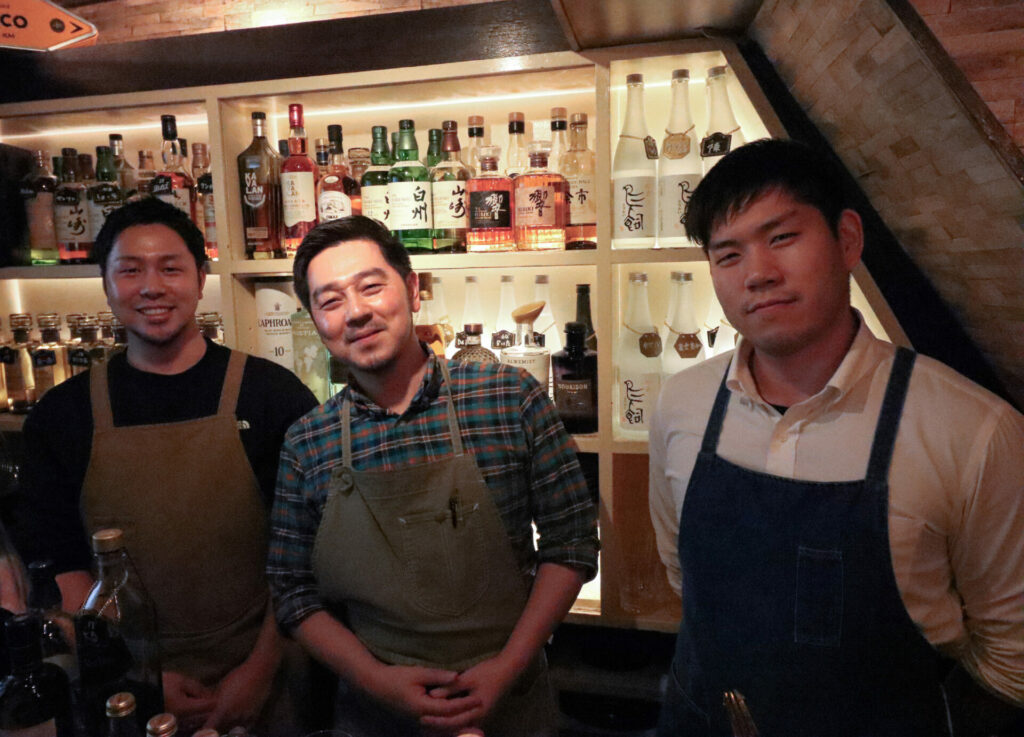
I can tell straight away that the bartenders know Masaki, and this is further confirmed when he asks for his bottle of shochu, a distilled beverage with a barley-like aroma and sweet taste that has overtaken saké as Japan’s most popular alcoholic drink. The bartender retrieves the bottle from the shelf and pours a glass for each of us.
I then notice that there are about a hundred bottles of shochu and whisky, each tagged with a gold medallion and chain around its neck and labelled with a different customer’s name — there may be only seven bar stools, but there must be a lot of regulars who pop in.
“Japanese people are shy, and this forces us to talk to each other,” says Masaki, explaining why these intimate bars are so common. After spending some time chatting to the bartenders and other customers — the space really does force you to interact with others — we call it a night. Walking past the infamous Gold Finger lesbian bar, the Blacknude topless waiter bar and the Campy! Bar — where drag queens serve the drinks — I sense that there really is something for everyone.
I’m staying at the Hilton Tokyo, which is situated west of the massive Shinjuku Station. This area has the benefit of being more tranquil while still being only a short walk away from the noisy streets and bright neon lights.
Within the 830-room high-rise hotel, the highlight is the second floor, where a collection of open-plan restaurants acts as a luxury food court. Earlier in the day, I had bypassed the Chinese and steak house offerings for Junisoh’s teppanyaki grill. I was entertained by the chef cooking my lunch mere inches from me, with each dish presented like a work of art.
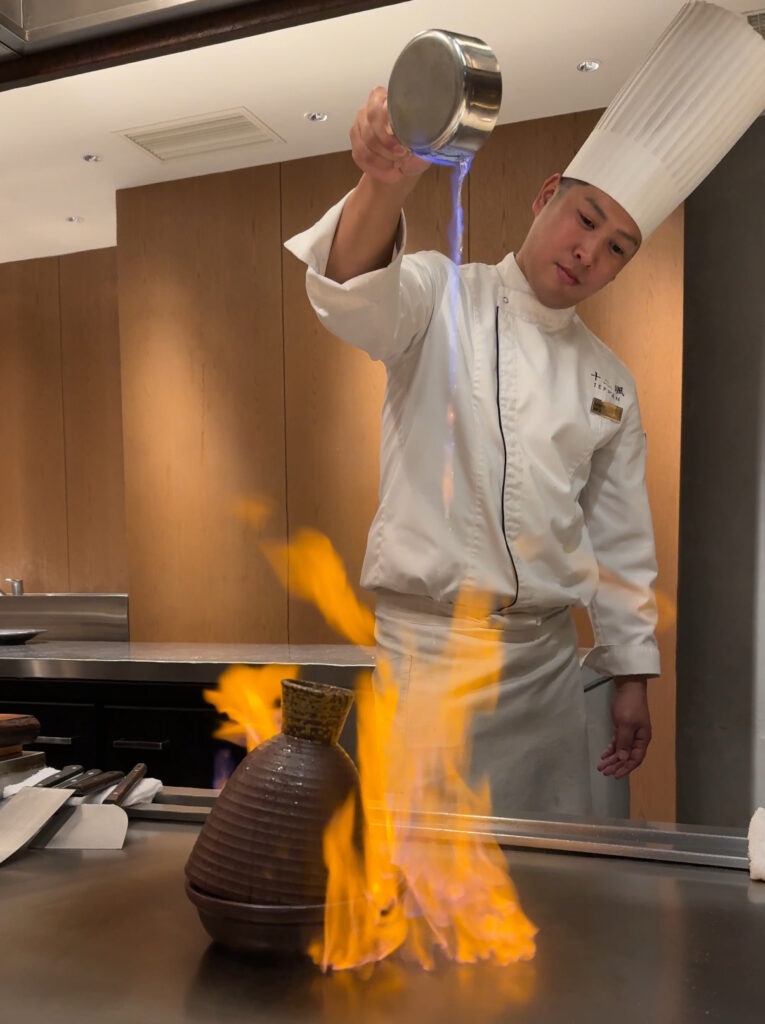
The next morning, I wake up and spot on my Instagram Stories that Attitude has published a breaking news story about Japan’s Supreme Court ruling that a ban on same-sex marriages is unconstitutional. What a moment to be in the country!
Masaki has invited me to his friend’s flat for lunch. We take the subway out of central Tokyo to a residential neighbourhood, and when we arrive, I find myself in the company of five Japanese men and two of their boyfriends — one American and one Welsh. They have prepared the most incredible lunch, presented buffet-style.
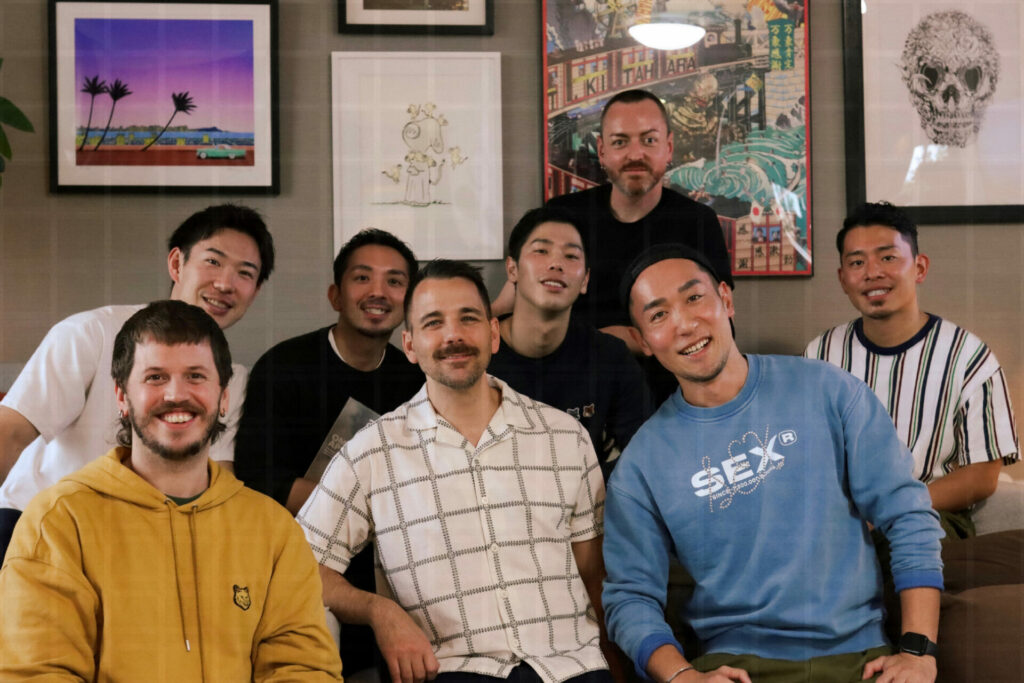
As we chat, I take the opportunity to ask the Japanese guys what they think about the Supreme Court ruling. My question is met with blank faces. The Welshman says he heard about it in the English written Japanese news but did not see it in the Japanese-language news.
With Taiwan, Thailand and Nepal all legalising equal marriage between 2019 and 2024, I ask if they think Japan will feel pressured to follow suit? They explain how the ruling party is quite conservative, but are currently in a minority government, so the other parties could possibly force through marriage equality.
With lunch over, it’s time for me to head back to Shinjuku to catch my two-and-a-half-hour bullet train south to my next destination: Osaka.
To book a tour of Tokyo with Masaki, visit japachill.com
